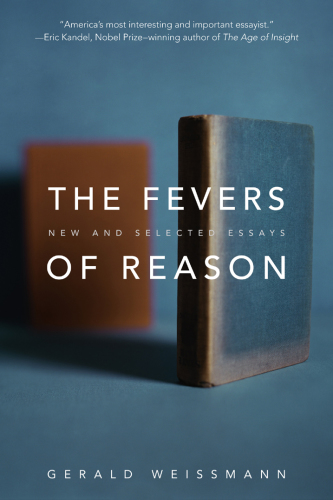
The Fevers of Reason
New and Selected Essays
کتاب های مرتبط
- اطلاعات
- نقد و بررسی
- دیدگاه کاربران
نقد و بررسی

January 1, 2018
A noted physician and essayist collects pieces dealing with subjects ranging from immigration to Einstein to Alice James.As Weissmann (Medicine/New York Univ. School of Medicine; Epigenetics in the Age of Twitter: Pop Culture and Modern Science, 2012, etc.) states, one of his personal and professional heroes is Lewis Thomas, and Weissmann clearly possesses some of Thomas' gifts. Most of these pieces appeared in FASEB Journal, where the author is book reviews editor, and we see throughout the book the extensive range of his interests. Literary figures dance through the pages--especially Oliver Wendell Holmes, whose science and literary efforts Weissmann admires (the former more than the latter). There are also allusions to Eliot, Proust, Sinclair Lewis, Sherlock Holmes--whose name, argues the author, came from Oliver Wendell--and Edgar Allan Poe. Weissmann also offers an amusing example from the Marx brothers' film Horse Feathers (1932) in an essay that assails the emphasis on athletics in today's universities. The author also has a number of foes he battles in these pages, including the current U.S. anti-immigration madness, the insistence among some that science is just a sort of a guess (the truth is in the Bible), and the rise of homeopathy and the emergence of fibromyalgia and chronic fatigue syndrome as illnesses (he goes after this topic in a couple of essays). He praises Richard Dawkins and others who have been battling the forces of anti-science and -reason. There is no doubt where Weissmann's sympathies lie; his heart is bare on virtually every page. But he also fills those pages with medical science and history, and the medical cognoscenti will enjoy these elements more than his Marx Brothers allusions. Weissmann also flashes some wit, even ending one essay with a groaner of a pun: "beauty is in the pie of the beholder."Essays that brim with knowledge and bubble with attitude.
COPYRIGHT(2018) Kirkus Reviews, ALL RIGHTS RESERVED.

January 8, 2018
Weissmann (Epigenetics in the Age of Twitter), a physician and professor emeritus at New York University School of Medicine, has made his writing career exploring surprising convergence points between medical, scientific, political, and cultural history. In this uneven collection of essays—some of them stimulating and others strained—the selections are organized into sections that correspond to perennial themes in his writing, such as connections between the history of viruses and cultural phenomena; intellectual partnerships that yielded world-changing scientific innovations (e.g., Pierre and Marie Curie); and immigrants whose arrival in America changed the course of scientific thinking (e.g., Richard Dawkins). Weissmann’s project is to show how science and culture aren’t as distant as often thought, and the best of the essays are wonderfully stimulating and exciting in how they make this point. Others make flimsier connections—for example, “Lupus and the Course of Empire,” which makes the counterfactual claim that if the British royal family hadn’t suffered from lupus in the 17th century, then the United States would have a national health service. Weissmann’s confirmed admirers will be captivated anew, but newcomers may find the coincidences to which Weissmann is drawn more facile than illuminating.

























دیدگاه کاربران